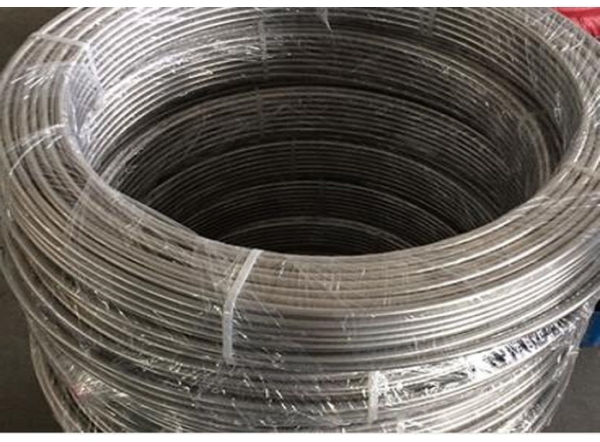Why Stainless Steel Tubing Coil is Essential for Industrial Applications
The Importance of Stainless Steel Tubing Coil
Stainless steel tubing coil is a versatile and durable material used in various industries, from construction to manufacturing. Its resistance to corrosion, high strength, and flexibility make it ideal for applications that require precision, reliability, and long-lasting performance. In this blog, we’ll explore the benefits of Stainless steel tubing coil, its uses, and why it’s a preferred choice for many industrial applications.
What is Stainless Steel Tubing Coil?
Stainless steel tubing coil refers to stainless steel tubes that are wound into coils, making them easier to handle, store, and transport. These coils come in various sizes and grades, depending on the specific requirements of the application. They are known for their ability to maintain structural integrity under extreme conditions and their resistance to rust and corrosion.
Benefits of Stainless Steel Tubing Coil
Stainless steel tubing coil offers numerous advantages, such as:
-Corrosion Resistance: Stainless steel is highly resistant to corrosion, making it ideal for outdoor and high-humidity environments.
-Durability: Stainless steel tubing coil is strong and can withstand high pressure, temperature extremes, and physical wear.
-Flexibility: The coiled form allows for easy transportation and installation, especially in confined spaces.
-Customizable: Stainless steel tubing coils can be customized in various sizes, thicknesses, and grades to suit specific needs.
-Longevity: With proper care, stainless steel tubing coil can last for many years, reducing the need for frequent replacements.
Applications of Stainless Steel Tubing Coil
The versatility of stainless steel tubing coil makes it suitable for many industries, including:
Heat Exchangers: Stainless steel tubing coils are often used in heat exchangers for efficient heat transfer.
Medical Equipment: In the medical field, stainless steel tubing coil is used for sterile applications and fluid transport.
Food and Beverage Industry: Due to its hygienic properties, it’s used in food processing systems and refrigeration lines.
Chemical Processing: Stainless steel tubing coil is used for transporting corrosive chemicals without risk of degradation.
Construction and HVAC: Stainless steel coils are used in plumbing, HVAC systems, and as reinforcement in construction materials.
How Stainless Steel Tubing Coil is Manufactured
The production of stainless steel tubing coil involves several key steps:
Material Selection: High-quality stainless steel alloys are chosen based on the application requirements (e.g., 304, 316 grades).
Tubing Formation: Stainless steel is processed into tubes through extrusion or other forming techniques.
Coiling: The tubing is then wound into coils, making it easier to handle and transport.
Finishing: The coils are cleaned, cut to the desired length, and undergo surface treatments to enhance performance.
Conclusion: Why Choose Stainless Steel Tubing Coil
Stainless steel tubing coil is an indispensable material in many industries, offering durability, flexibility, and resistance to corrosion. Whether you need it for heat exchangers, medical equipment, or chemical processing, stainless steel tubing coil ensures long-term reliability and efficiency. By selecting the right tubing coil for your project, you can achieve superior results and performance.








